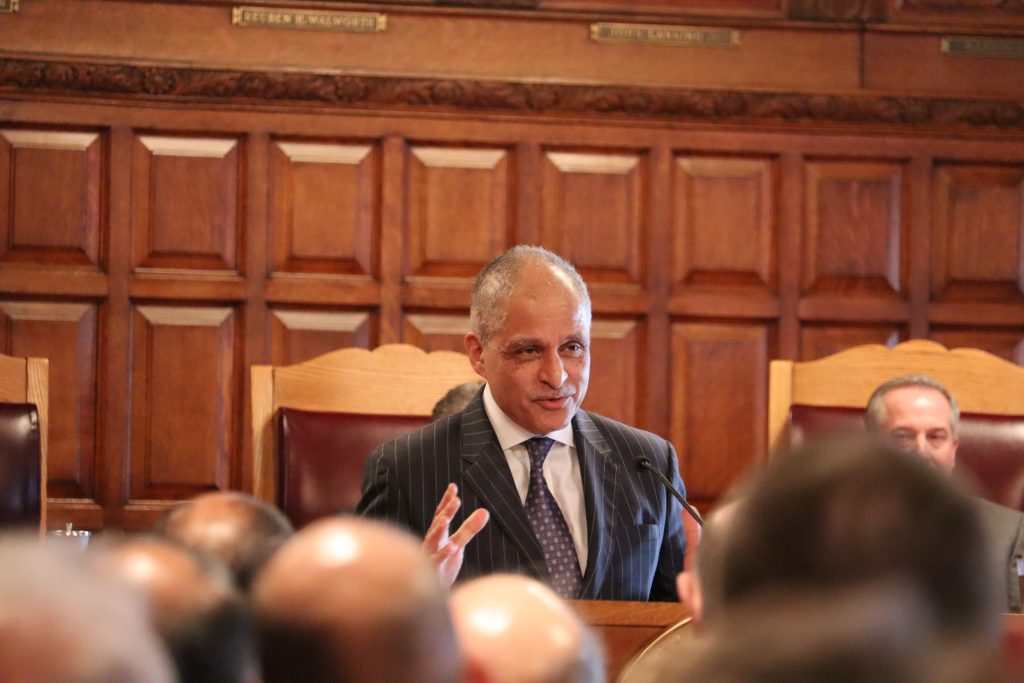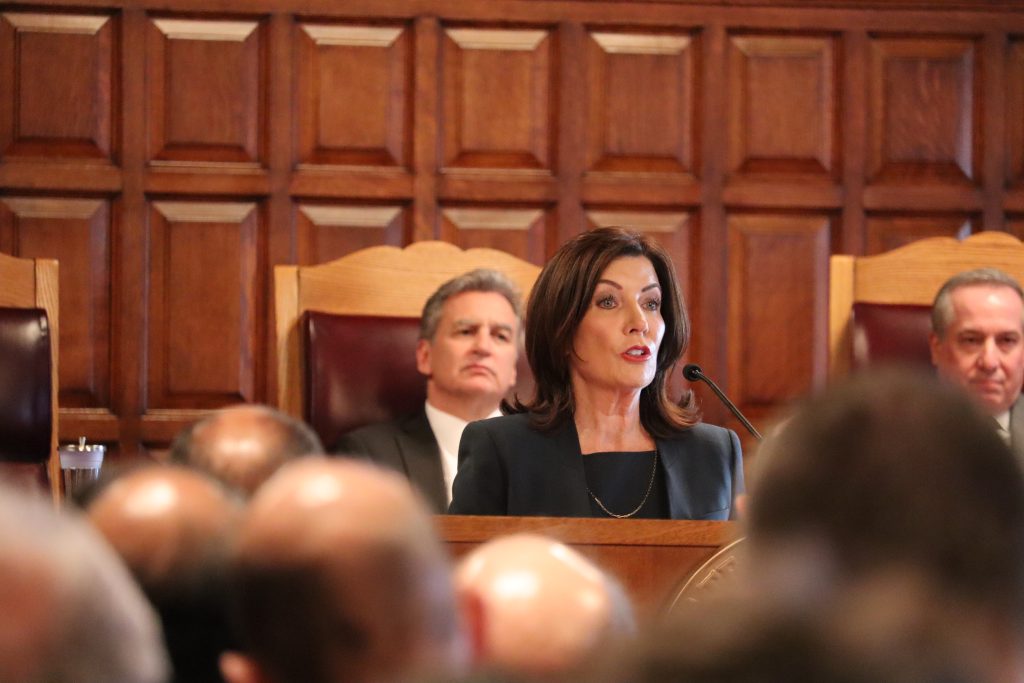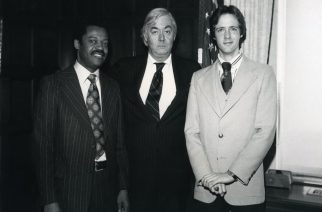
Chief Judge Rowan Wilson spoke in the chamber of the New York State Court of Appeals to call for the legislature to include funding for the state’s problem-solving courts in this session’s budget.
The state court system will be putting a heavy emphasis on more specialized courts this coming year, including drug treatment courts, veteran courts and alternative-to-incarceration courts.
Chief Judge Rowan Wilson outlined his goals for the court system in his State of the Judiciary address last month. He used the word, unorthodox, to explain his vision for the year and the address held on Feb. 27.
Rather than explaining these goals himself, Chief Judge Wilson hosted a number of speakers who talked about their life-changing experiences within the state’s court system, with an emphasis on the ways alternatives to traditional courts have helped them and their constituents.
Wilson called on the Legislature to increase funding for those problem-solving courts that offer solutions for troubled families, those dealing with addiction and military veterans who could use a second chance, instead of facing jail time.
One of the speakers, Keisha Nankoosingh, spoke about her time with the Monroe County Judicial Diversion program with the Felony Drug Court.
Nankoosingh was introduced by Kimberly VanCamp, the project director of the Seventh Judicial District Treatment Court. VanCamp began by speaking about the requirements a participant must meet to be a part of the diversion program.
“Successful completion of substance use disorder treatment, sustained abstinence from mood altering chemicals,” she said. “They must have a high school diploma [or equivalent], complete community service hours, be gainfully employed and have no new arrests. Sounds simple right?”
Despite the long list of necessary requirements Nankoosingh was able to meet, keep and exceed those requirements through to the completion of the program and is now a certified recovery peer advocate.
“Ten years ago, my life was very different. For over a decade [my partner and I were] dependent on drugs and alcohol. There were times during active use that we wanted to change and get sober but couldn’t stay committed,” she said. “In the end we had no money, no job, no transportation, no home and we pushed our friends and families away. Then all of the ‘not-yets’ started to happen that resulted in some criminal charges.”
At Nankoosingh’s arraignment she was facing up to seven years in prison, but was told she may qualify for treatment court, one of the specialized courts designed to not incarcerate individuals who can qualify for their different programs.
“I was relieved because I knew that I needed help and I knew that the treatment courts could provide me with the tools I’d need to sustain my sobriety,” she said. “I was told that successful completion of the program would result in no criminal convictions. Choosing treatment court was the best decision of my life, and my partner also chose treatment court.”
Nankoosingh’s journey did not come without loss however. Her partner did not complete the treatment court program and was sentenced. Shortly after his release from prison, he became ill and passed away in 2020, she said.
“These are the stakes. It’s life or death,” Nankoosingh said. “Treatment court gave me the support and hope that I needed to live.”

Governor Kathy Hochul spoke at the State of the Judiciary reaffirming her support of Chief Judge Wilson and the state’s court system.
Chief Judge Wilson had a number of other speakers come in and talk about their experiences with these specialized courts. From veterans courts to family courts, people shared their struggles and how these alternatives to the traditional court system have benefitted them and worked to keep them on straight paths.
“Due to past fiscal crises and a company of budget cuts, the courts have been forced to make do with less,” Chief Judge Wilson said in his closing remarks. “With greater resources, not just for the courts themselves, but for the attorneys and ancillary providers vital to treating troubled New Yorkers with professionalism, care and compassion, I am confident that we can find ourselves overflowing with happy endings.”









